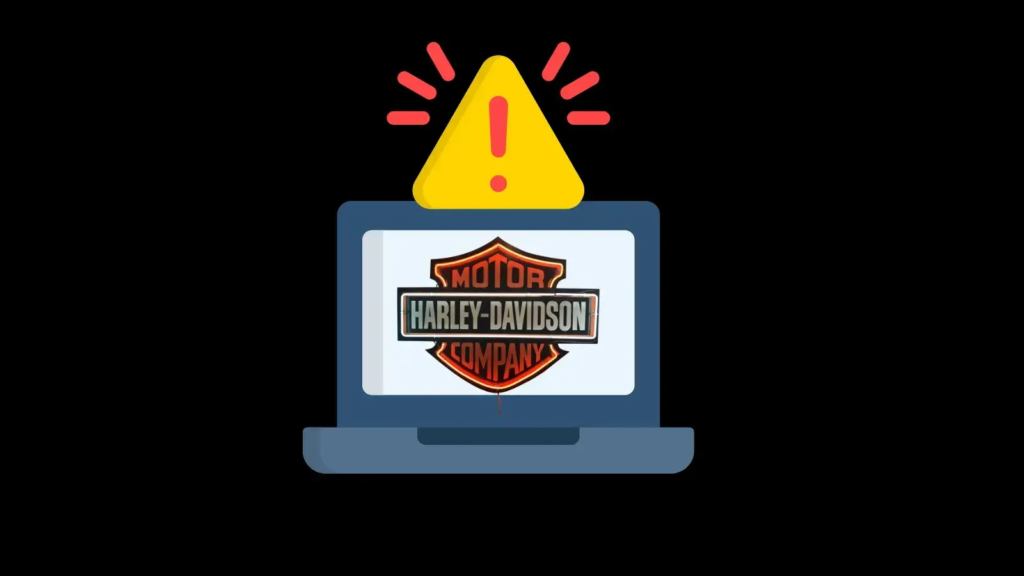Harley-Davidson Data Breach: Protect Your Customer Details Now

Hoplon InfoSec
31 Dec, 2024
Harley-Davidson, the legendary American motorcycle manufacturer synonymous with freedom and adventure, has reportedly fallen victim to a significant data breach. This breach, allegedly orchestrated by a cybercriminal group known as “888,” has raised alarm bells among the cybersecurity community and customers. The incident underscores the ever-growing challenges of protecting sensitive data in a digital age.
The Alleged Breach: How Does Harley-Davidson Data Breach Happend?
On the dark web, “888” has claimed responsibility for leaking a database allegedly containing the personal information of over 66,700 Harley-Davidson customers. The nature of the data purportedly exposed includes:
- Full Names: Both first and last names.
- Addresses: Street, city, state, and zip code.
- Email Addresses: Primary channels of communication.
- Mobile Phone Numbers: Personal contact details.
This sensitive information was allegedly made available to the group’s subscribers. While these claims have not been officially verified, the potential implications are severe. If true, this incident could lead to identity theft, phishing attacks, and other malicious activities targeting affected individuals.
Who is “888”?
The group behind this breach, known as “888,” is a relatively obscure entity in cybercrime. Despite their lesser-known status, their activities have caught the attention of cybersecurity analysts due to their bold claims and the potential scale of the breach. Operating on the open and dark web, they appear to share stolen data primarily with paid subscribers, making their operations highly lucrative and dangerous.
Cyber threat intelligence experts are still analyzing “888”’s tactics, techniques, and motives. While much about the group remains unknown, this incident highlights the evolving sophistication of cybercriminals targeting high-profile organizations.
The Impact on Harley-Davidson’s Reputation

Harley-Davidson is not just a brand; it is an American icon. It has represented freedom, individuality, and the open road for over a century. A breach of this magnitude could significantly damage the company’s reputation, shaking customer trust and loyalty.
Cybersecurity breaches often lead to:
- Loss of Customer Trust: Customers expect their personal information to be handled securely. A breach can lead to widespread dissatisfaction and loss of faith in the brand.
- Financial Consequences: Beyond potential lawsuits and regulatory fines, companies often face steep costs in addressing breaches, such as hiring cybersecurity firms, upgrading systems, and compensating affected customers.
- Brand Tarnish: The perception of being unable to protect customer data can linger, impacting sales and partnerships for years.
The Evolving Threat Landscape
This incident reflects the growing challenges corporations face in safeguarding sensitive consumer data. Cybercriminals are becoming increasingly sophisticated, leveraging advanced tools and techniques to exploit vulnerabilities. High-profile organizations like Harley-Davidson are desirable targets due to the vast amount of data they store.
Key trends in the threat landscape include:
- Increased Ransomware Attacks: Cybercriminals often use ransomware to encrypt data, demanding payment for its release.
- Data Leaks for Profit: Groups like “888” monetize stolen data by sharing it with subscribers or selling it outright.
- Targeted Phishing: Using leaked information, attackers craft convincing phishing campaigns to deceive individuals.
The Importance of Robust Cybersecurity Measures
In the wake of such incidents, organizations must prioritize cybersecurity to prevent breaches and mitigate potential damage. Best practices include:
- Data Encryption: Encrypt sensitive data in transit and at rest to make it unusable if accessed without authorization.
- Regular Security Audits: Conduct routine assessments to identify and address vulnerabilities in systems and networks.
- Employee Training: Educate staff on recognizing phishing attempts and other common attack vectors.
- Incident Response Plans: Develop and regularly update response plans to address breaches swiftly and effectively.
- Third-Party Security: Vet and monitor the cybersecurity practices of third-party vendors, as they can also introduce risks.
What Should Affected Customers Do?
The alleged breach reminds Harley-Davidson customers to take proactive steps to protect themselves. While the company has yet to confirm the incident, staying vigilant is crucial. Here are some actions to consider:
- Monitor Financial Accounts: Regularly check bank statements and credit reports for unauthorized transactions.
- Beware of Phishing Attempts: Be cautious of unsolicited emails or messages claiming to be from Harley-Davidson or other entities, especially those requesting personal information.
- Change Passwords: Update passwords for accounts associated with Harley-Davidson and use strong, unique passwords.
- Enable Two-Factor Authentication: Add an extra layer of security to online accounts whenever possible.
Harley-Davidson’s Next Steps

As of now, Harley-Davidson has not issued an official statement regarding the alleged breach. However, companies typically follow a series of steps after such incidents:
- Investigate the Breach: Work with cybersecurity experts to determine the scope and cause of the breach.
- Notify Affected Parties: Inform customers and stakeholders about the incident and provide guidance on protective measures.
- Enhance Security: Implement stronger cybersecurity measures to prevent future breaches.
- Collaborate with Authorities: Cooperate with law enforcement and regulatory agencies to investigate the perpetrators.
- Rebuild Trust: Engage with customers transparently to rebuild confidence in the brand.
Lessons for the Corporate World
This alleged breach serves as a stark reminder for companies worldwide. In an era where data is valuable, safeguarding it must be a top priority. Organizations should:
- Invest in Advanced Cybersecurity Tools: Technologies like artificial intelligence and machine learning can help detect and respond to threats in real time.
- Adopt a Zero-Trust Model: Assume no internal or external entity is automatically trustworthy and verify all access requests.
- Foster a Culture of Security: Make cybersecurity an integral part of the corporate culture, from the boardroom to the front line.
Conclusion
The reported Harley-Davidson data breach is a sobering example of the risks organizations face in the digital landscape. While the authenticity of the claims remains unverified, the potential implications highlight the importance of robust cybersecurity measures and customer vigilance. As investigations continue, Harley-Davidson and its customers must mitigate potential harm and strengthen defenses against future threats. Ultimately, the incident underscores a crucial truth: cybersecurity is everyone’s responsibility in today’s interconnected world.
For More:
Share this :